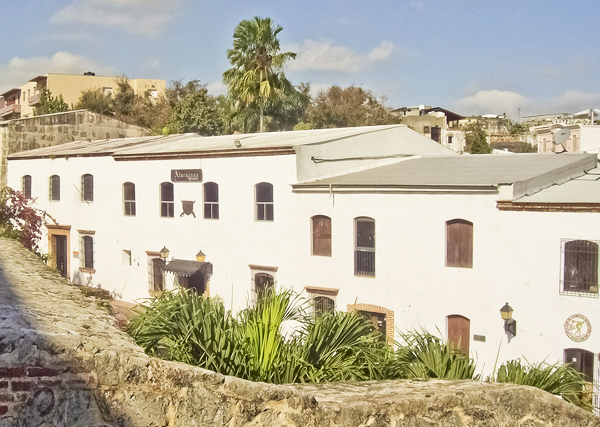Public Transportation in Santo Domingo
Summary: Mastering the public transportation system in Santo Domingo is a crucial aspect of adapting to life there. This article provides a detailed overview of the available local transit options.

Santo Domingo, the capital city of the Dominican Republic, is a bustling metropolis with a variety of public transportation options. The city is served by a network of buses, taxis, motoconchos (motorcycle taxis), and a modern metro system. The public transportation system in Santo Domingo is affordable and extensive, making it possible for expats to live comfortably without a car. However, the quality and reliability of these services can vary, and navigating the system can be a challenge for newcomers.
Metro
The Santo Domingo Metro is the most modern and efficient form of public transportation in the city. It is also the first of its kind in the Caribbean. The metro system consists of two lines that cover a significant portion of the city, making it a convenient option for daily commuting. The metro is safe to use at all times of the day, and it is well-patrolled by security personnel. A single trip costs 20 Dominican pesos (about 0.40 USD), making it an affordable option for most residents. The metro operates from 6:00 AM to 10:30 PM, and trains run every 10-15 minutes.
Buses
Buses in Santo Domingo are operated by the Office for the Reorganization of Transportation (OPRET). They are a common mode of transportation and cover a wide range of routes across the city. However, buses can be crowded, especially during peak hours, and they do not always adhere to a strict schedule. The fare for a bus ride is typically around 25 Dominican pesos (about 0.50 USD). While buses are generally safe, it is advisable to be cautious of pickpockets, especially in crowded conditions.
Taxis
Taxis are a popular mode of transportation in Santo Domingo, especially for expats and tourists. They are readily available throughout the city and can be hailed on the street or booked through a hotel or taxi company. Taxis in Santo Domingo do not use meters, so it is important to negotiate the fare before starting the trip. While taxis are generally safe, it is recommended to use a reputable company or a taxi recommended by a hotel or restaurant.
Motoconchos
Motoconchos, or motorcycle taxis, are a unique form of transportation in Santo Domingo. They are a quick and inexpensive way to get around, especially in areas with heavy traffic. However, motoconchos are not for the faint-hearted. The drivers often weave through traffic at high speeds, and helmets are not always provided. While they can be a fun and exciting way to experience the city, they are not recommended for those who prioritize safety and comfort.
In conclusion, while the public transportation system in Santo Domingo is extensive and affordable, it does have its challenges. The metro system is modern and efficient, but it does not cover the entire city. Buses are widely available, but they can be crowded and unreliable. Taxis are convenient and safe, but fares need to be negotiated. Motoconchos offer a unique and thrilling way to get around, but they are not the safest option. Therefore, while it is possible to live in Santo Domingo without a car, having one can provide more comfort and convenience.
About the Author
 Joshua Wood, LPC joined Expat Exchange in 2000 and serves as one of its Co-Presidents. He is also one of the Founders of Digital Nomad Exchange. Prior to Expat Exchange, Joshua worked for NBC Cable (MSNBC and CNBC
Primetime). Joshua has a BA from Syracuse and a Master's in Clinical and Counseling Psychology from Fairleigh Dickinson University. Mr. Wood is also a licensed counselor and psychotherapist.
Joshua Wood, LPC joined Expat Exchange in 2000 and serves as one of its Co-Presidents. He is also one of the Founders of Digital Nomad Exchange. Prior to Expat Exchange, Joshua worked for NBC Cable (MSNBC and CNBC
Primetime). Joshua has a BA from Syracuse and a Master's in Clinical and Counseling Psychology from Fairleigh Dickinson University. Mr. Wood is also a licensed counselor and psychotherapist.
Some of Joshua's articles include Pros and Cons of Living in Portugal, 10 Best Places to Live in Ireland and Pros and Cons of Living in Uruguay. Connect with Joshua on LinkedIn.
Additional Information:
- Expat Guide to Santo Domingo
- Healthcare & Health Insurance in Santo Domingo
- Best Bookstores and Libraries in Santo Domingo
- Fun Classes for Expats Living in Santo Domingo
- Public Transportation in Santo Domingo
- Best Markets in Santo Domingo
- Retire in Santo Domingo Guide
- 7 Tips for Living in Santo Domingo
- Pros & Cons of Living in Santo Domingo
- Driving in Santo Domingo
- Cost of Living in Santo Domingo
- Health Care in Santo Domingo
- Discover the Best of Santo Domingo
- Healthcare & Health Insurance in Dominican Rep
- Best Places to Live in Dominican Rep
- Real Estate in Dominican Rep
- Pros & Cons of Living in Dominican Rep
- 15 Best Places to Live in the Dominican Republic
- Pros and Cons of Living in Dominican Rep 2025
- 2025 Guide to Moving to Dominican Rep



